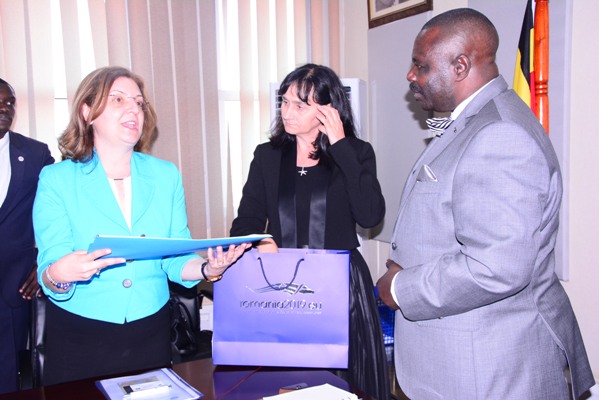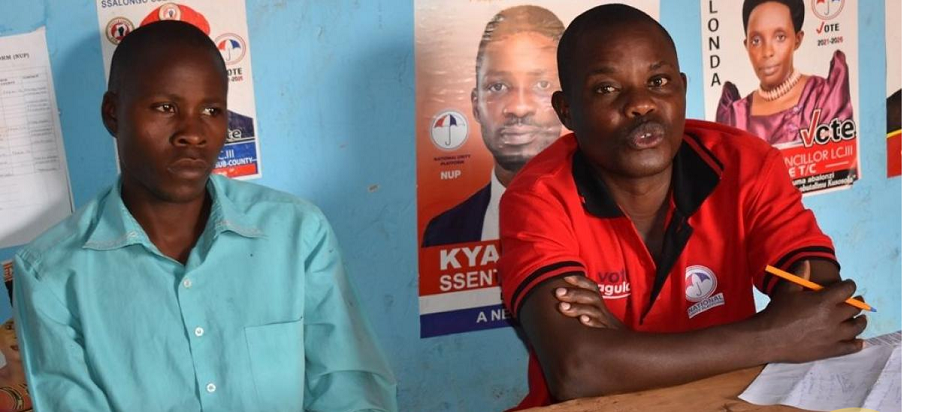A section of Members of Parliament has called for increased financial support to Resident District Commissioners (RDCs), their Deputies, and Assistants, despite ongoing concerns about the growing number of these officials and their impact on Uganda’s public expenditure.
The appeal followed the presentation of the 2025/26 Ministerial Policy Statement by Alex Byarugaba, Chairperson of the Presidential Affairs Committee. Byarugaba informed Parliament that the Office of the President requires UGX 34.604 billion to adequately facilitate RDCs, but only UGX 24.180 billion has been allocated—leaving a funding shortfall of UGX 10.424 billion.
“The funding gap hinders the provision of vehicle maintenance, capacity building, fuel, and other allowances. Inadequate facilitation affects the RDCs’ ability to effectively monitor government programs, leading to poor implementation and service delivery,” said Byarugaba.
He noted that uniform facilitation across all districts, regardless of their size or terrain, creates inequality. “Districts like Wakiso, Kasese, Isingiro, Ntungamo, Tororo, and Sironko require more tailored support,” he said, recommending an additional UGX 12.42 billion and proposing that the district’s size and characteristics be considered in allocating funds.
Noeline Basemera (Kibaale DWR) supported the recommendation, emphasizing the need for transport support. “We have RDCs, Deputy RDCs, and Assistants in our districts, but they lack transport facilitation. These are hardworking people, but they are limited in what they can achieve without adequate support,” she said.
Alfred Edakasi (Kaberamaido County) echoed similar sentiments, saying, “In Kaberamaido, RDCs are second only to LC1s in fighting crime and monitoring government projects. They deserve more funding.”
However, Stephen Kasaija (Burahya County) challenged the call for increased support, questioning the necessity of the large number of RDCs. “Do we really need this many RDCs, Deputy RDCs, and Assistants when we can’t even facilitate them properly? The position is increasingly becoming a political dumping ground for failed politicians,” he said.
Parliament also heard that the Office of the President is struggling with office accommodation, currently spending UGX 3.35 billion on rental fees, a figure that continues to rise and is deemed unsustainable. Although UGX 3.5 billion is required to construct five RDC offices, only UGX 700 million has been allocated for the construction of a single office in FY2025/26—leaving a gap of UGX 2.8 billion.
The Office of the President has deployed RDCs in 146 administrative units. Of these, 107 operate from rented premises, 24 are housed by District Local Governments, and only 15 occupy government-constructed offices. Since FY2012/13, the government has constructed RDC offices in districts including Lamwo, Abim, Amuru, Kiryandongo, Kamuli, Buhweju, Bundibugyo, Lwengo, Rubirizi, Butaleja, Adjumani, Butambala, Otuke, Luuka, and Nakapiripirit—each at a unit cost of UGX 700 million. This means 131 districts still lack purpose-built RDC offices.
In a related matter, the Office of the President is seeking UGX 10 billion for the development and maintenance of the National Leadership Institute (NALI) in Kyankwanzi. However, only UGX 2.5 billion has been allocated for FY2025/26, resulting in a UGX 7.5 billion shortfall.
In FY2022/23, government spent UGX 7.9 billion to construct accommodation facilities at NALI, yet the Institute still faces significant infrastructure deficits, including dilapidated housing and inadequate training and office space.
Planned interventions at Kyankwanzi include:
-
UGX 2 billion for boundary opening and land title processing,
-
UGX 2 billion for redesigning and reconstructing an old dormitory,
-
UGX 950 million for accommodation items, and
-
UGX 2.5 billion for the construction of an auditorium.
These investments are considered essential for fostering a conducive environment for training transformative national leadership.
Overall, the proposed budget for the Office of the President for FY2025/26 stands at UGX 347.531 billion—representing a 23.5% increase from the approved FY2024/25 budget. The breakdown includes UGX 30.974 billion for wage expenditure, UGX 296.433 billion for non-wage recurrent expenditure, and UGX 20.724 billion for domestic development.





